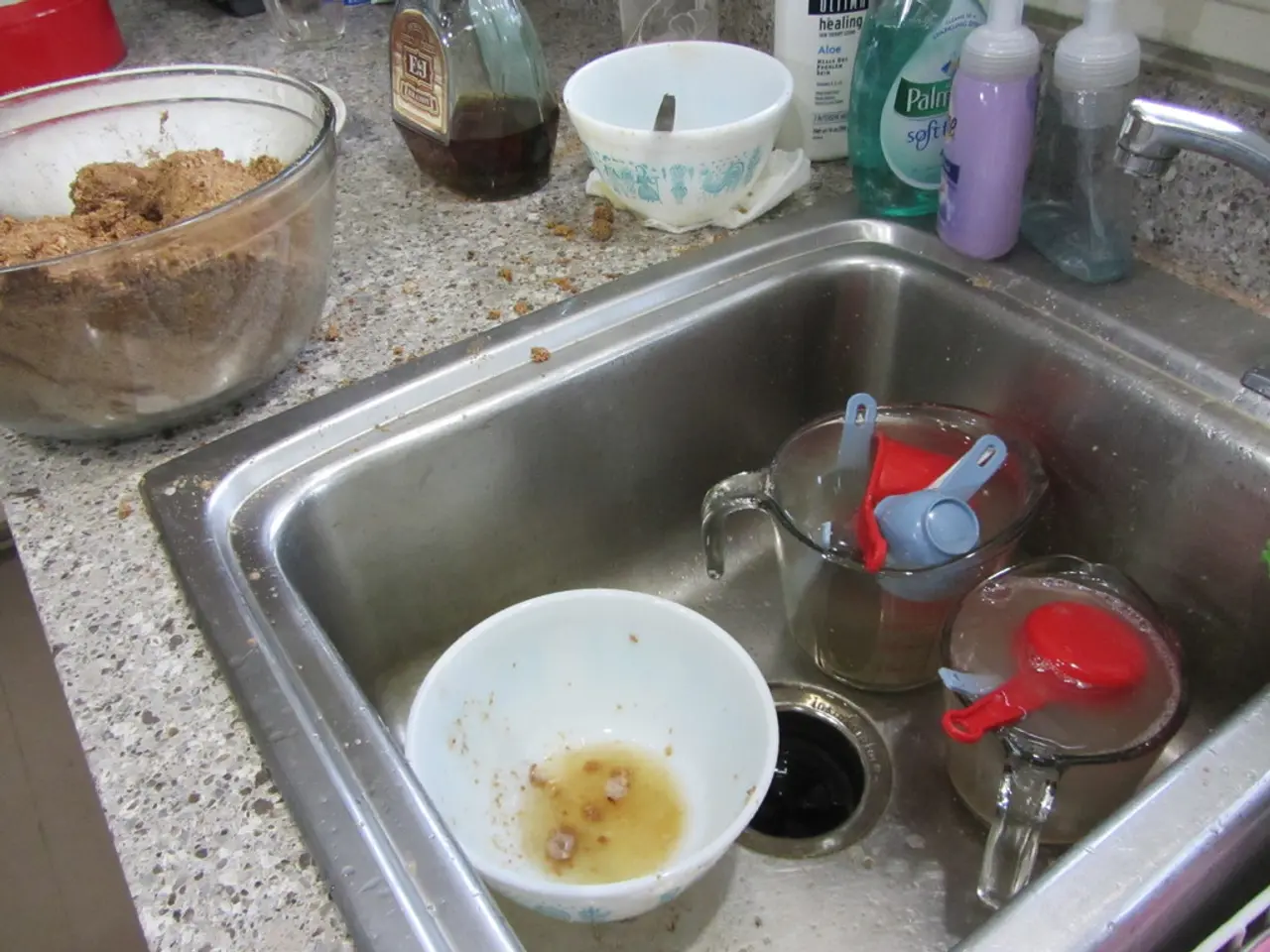Dietary and Ecological Concerns for Individuals with Impaired Immune Systems
In a world where maintaining a robust immune system is crucial, immunocompromised individuals face unique challenges. From diseases such as AIDS, cancer, diabetes, malnutrition, and certain genetic disorders, to treatments like radiation therapy, anticancer drugs, and organ or stem cell transplants, a weakened immune system can be caused by various factors.
To help these individuals, it's essential to focus on supporting immune function through nutrition and minimizing infection risk through strict hygiene.
**Dietary Recommendations:**
A balanced diet rich in nutrients is key. Foods such as leafy green vegetables, oily fish, nuts and seeds, berries, turmeric, ginger, and fermented foods are packed with vitamins A, C, B vitamins, omega-3 fatty acids, vitamins E, selenium, antioxidants, and other essential nutrients that bolster the immune system.
Critical nutrients like vitamins D and C, zinc, selenium, and omega-3 fatty acids are vital for various immune cells that combat infections and regulate viral load.
However, immunocompromised individuals should avoid foods with a high risk of foodborne pathogens. During high-risk periods, a neutropenic diet is advised, which involves strict food hygiene and the avoidance of raw or undercooked animal products, unpasteurized dairy, soft cheeses, raw or undercooked meat and seafood, deli meats, unwashed fruits and vegetables, and unpasteurized juices. Instead, consume only thoroughly cooked and pasteurized foods to reduce exposure to pathogens like Listeria, Salmonella, and E. coli.
**Environmental Hygiene Practices:**
Maintaining a clean environment is equally important. Use standard cleaning and disinfection procedures with EPA-registered hospital-grade disinfectants that are effective against emerging viral pathogens to prevent surface contamination and spread of infection.
Manage soiled laundry carefully, handling bedding, towels, and clothing soiled with infectious material gently and promptly, and containing them in appropriate laundry bags to avoid shaking or dispersing infectious particles.
Prefer wet cleaning methods (wet mopping and wiping) over dry dusting, sweeping, or vacuuming to reduce airborne dispersal of infectious agents in the environment.
Lastly, vaccinate household members and caregivers to reduce transmission risk to immunocompromised individuals, creating a safer environment.
By following these dietary and environmental hygiene measures, we can enhance immune function, reduce exposure to pathogens, and protect immunocompromised individuals from infections and complications.
However, it's important to note that social isolation and feelings of exclusion and loneliness are common for immunocompromised patients due to the necessity of avoiding crowds. Peer support groups, professional counselling, and mental health services can help patients process their feelings, develop coping mechanisms, and lessen the psychological toll of their illness.
References: [1] National Institutes of Health. (2020). Nutrition and Immunity. Retrieved from
- In a world where maintaining a strong immune system is imperative, managing health conditions like cancer, diabetes, and chronic diseases requires careful attention, especially for immunocompromised individuals.
- A balanced diet rich in essential nutrients like vitamins A, C, B, E, selenium, omega-3 fatty acids, and antioxidants can help bolster the immune system.
- Certain dietary choices, such as raw or undercooked animal products, unpasteurized dairy, soft cheeses, raw or undercooked meat and seafood, deli meats, unwashed fruits and vegetables, and unpasteurized juices, should be avoided by immunocompromised individuals during high-risk periods due to the risk of foodborne pathogens.
- Maintaining strict environmental hygiene practices, such as using EPA-registered hospital-grade disinfectants, careful management of soiled laundry, and wet cleaning methods, can help prevent surface contamination and spread of infection.
- Vaccinating household members and caregivers can help reduce the transmission risk to immunocompromised individuals.
- Social isolation, feelings of exclusion, and loneliness are common for immunocompromised patients due to the necessity of avoiding crowds. Peer support groups, professional counseling, and mental health services can help patients process their feelings, develop coping mechanisms, and lessen the psychological toll of their illness.
- Nutrition, fitness and exercise, therapies and treatments, medical-conditions, chronic-diseases, cancer, mental-health, and science all play crucial roles in supporting the health and wellness of immunocompromised individuals.




